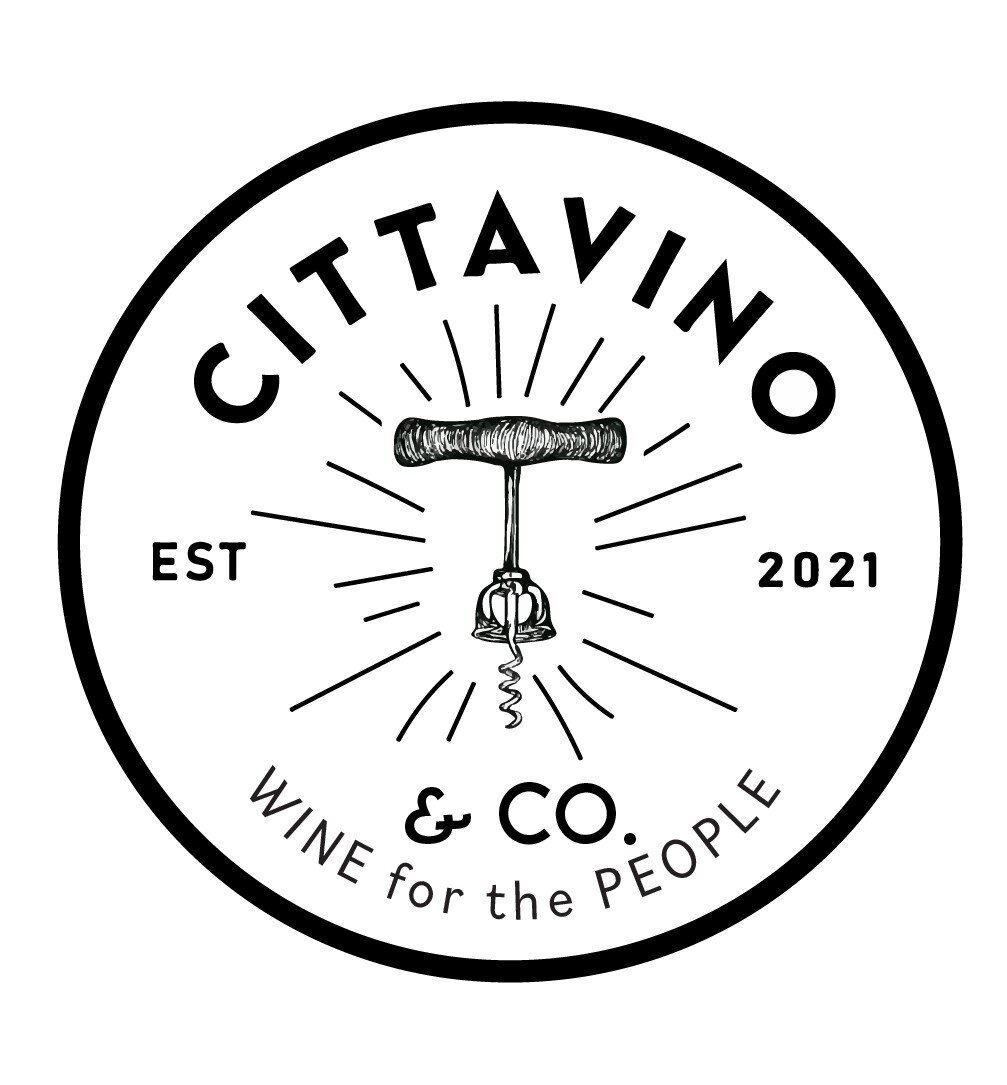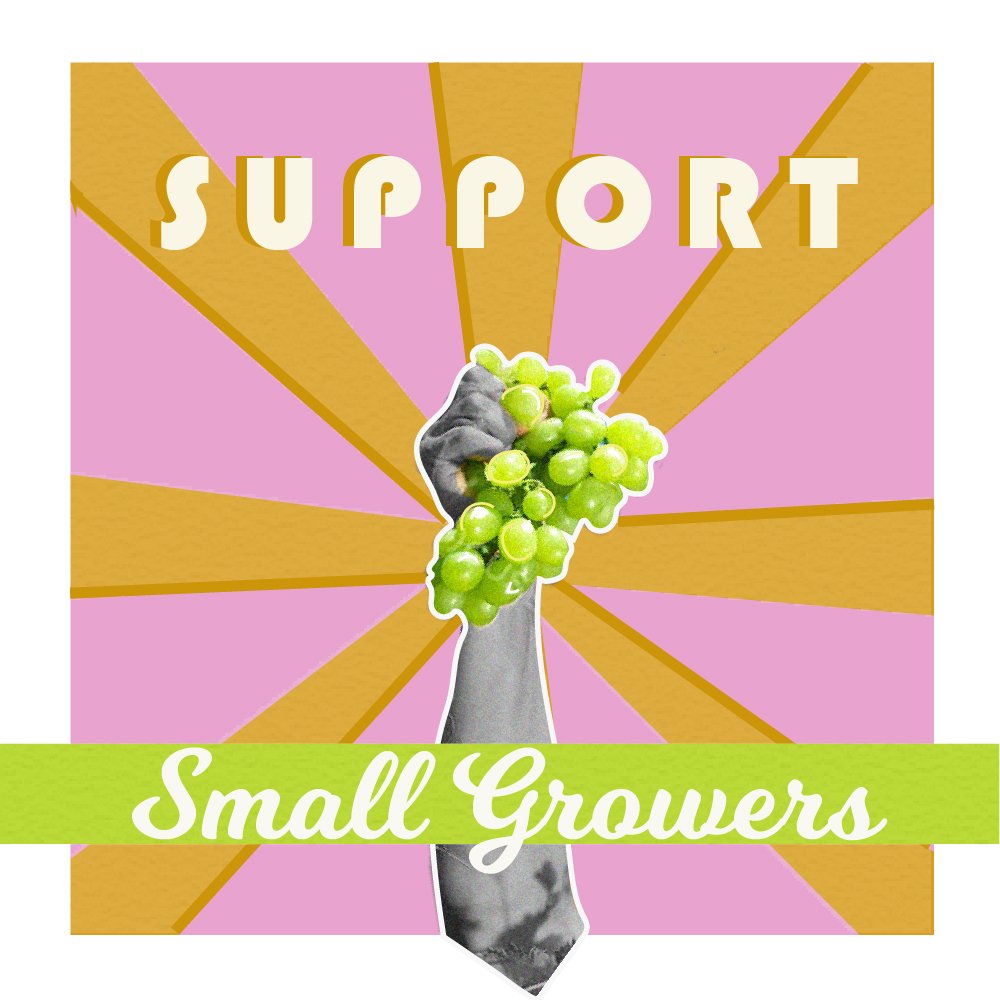why it’s important to buy from the little guys
How Supporting Small Production, Artisanal Wines Goes Beyond Personal Health and Environment
Last week, I shared Cittavino & Co.’s outlook on grower-winemaker wines and how these wines tend to be more environmentally conscientious and better for you (if you missed it, the entry is below, just give a scroll). We are not claiming that grower wines are by default better than negociant wines—absolutes are dangerous territory. There are negociant producers that make great juice and are particular about where they buy their grapes from, often forging decades long relationships with the grape growers. For southern Italy, however, focusing on the vignaiolo (“wine-grower” in Italian) is incredibly important not just from a quality stance, but from a social justice angle as well.
For a number of historical and socio-political reasons, the majority of the South remains poor and underdeveloped. Some regions, such as Sicily, have done an amazing job at promoting tourism and quality wine production, and we’ve seen a major uplift in the region (also thanks to the government’s efforts to crack down on the Mafia beginning in the 1960s). Mt. Etna was my first experience in understanding how wine production can enrich a community. The eastern portion of the volcano where the wine appellation resides is teaming with life. You may find an abandoned house or two, but for the most part it is lush, with vibrant communities. The western side of the volcano is starkly different. Covered in abandoned construction projects, parts of it felt like a ghost town. Agriculturally, the West side is known for its pistachio, but the international market for these little nuts comes nowhere near the demand for Mt. Etna wines and it shows. Additionally, the government does not financially support pistachio production in the same way they do wine. The prices of Etna wines and land have skyrocketed and the reinvestment in the territory with this money is starkly visible when compared to the western slopes of the volcano.
In meeting these smaller producers and in some cases working harvest with them, I’ve learned that for many of them, agriculture and making wine is inextricable from other aspects of their lives. It is a philosophy of life. They eat locally and regionally, supporting other local farmers (this is largely true for Italy as a whole, but especially so in the rural and agricultural South), they support young winemakers who want to enter the business by mentoring them and many cases, giving them access to their facilities and tools to make their own wine. One of my favorite examples of how these small time winemakers uplift their community comes from Ciro’, Calabria. Here, there is a small group of 8 winemakers that call themselves the Ciro’ Revolution. In the last few years, these small time vignaioli met with the local government to request patronage of a medieval fountain in the historical hilltop town. The government was going to tear it down and in a search to preserve their culture and physical landscape, these producers asked if they could give their own money to salvage and maintain this piece of history. In these cases, the investment in wine goes beyond the actual product. Efforts to elevate the quality of wine in the region is actually a push for cultural preservation, the betterment of territory and people as a whole.
In the South, it is common for the younger generations, encouraged by the generation before them, to leave and look for work elsewhere–the opportunities to make a living at home are just not available. The abandonment is obvious, especially in regions like Calabria. Driving along the Ionian (eastern side) is frankly, depressing. Despite being home to Ciro’, one of the major grape growing and wine making zones of the region, there are long stretches of what look like barren wastelands. By supporting these people and paying *real prices for their wines, we give them a chance to stay and invest in their communities. The younger generations generally still flock to the northern territories or other EU countries in search of jobs and opportunity, but some have come back. They see the potential in their land and are cultivating a future with well made, artisanal wine. Wine for them is an opportunity, and opportunity is power.
*a brief on wine prices…
When I began working harvests in the South, I experienced just how much energy goes into producing one bottle of wine for small time producers. You then have to factor in the entire supply chain it must go through in order to arrive in the United States. Rather than gawk at how expensive wine is, we should start to ask, how is this wine so cheap? Wine is an agricultural product, which means we might want to ask the same questions about it as we do our food. Truthfully, for a well made, small production and artisanal bottle of wine, where everyone involved in its production is paid fairly, you really shouldn’t expect to pay much less than $25/btl. Over time, paying the real price for wine has a profound positive effect on the local economy.
August 2, 2022
What is “grower wine”?
You may have heard this term within the context of Champagne. Big names in Champagne, such as Dom Pérignon, are negociant procedures, which mean they purchase grapes for their wine production. “Grower-Champagne” refers to the smaller producers who actually grow their own grapes and subsequently, their production stays pretty low when compared to the big guys. As wine buyers and consumers, we have become increasingly aware of the importance of supporting the smaller houses.
“Artisanal” and “small production” are not necessarily synonymous with organic grape growing and quality wine making, but in our big corporation, capitalist market, they are more likely to be so when compared to your grocery store wines. Here’s why…
The majority of Cittavino & Co. selections are grower-winemaker wines. Like grower-Champagne, this term means that the people making the wines are also those cultivating their own vineyards. Such winemakers are so in tune with the grape growing environment and the varieties they work with, they often by default grow the grapes organically and make wine naturally. Their constant presence in the vineyards allows them to catch potential issues before they become major problems and they can avoid the need for pesticides and herbicides. Ultimately, they are farmers who understand growing cycles, pests, and the value of growing unadulterated, non-toxic food because they are there touching the vines and soil daily. In bulk wine, winemakers purchase grapes to increase production. Since they are not in the vineyards growing these grapes, testing them for proper sugars, making sure all fungus infected grapes are cut away, etc, they have less control over the potential profiles of the wine. Therefore, in order to make the style they want, they are more likely to adjust the wines (sugar additions, tannin additions, acid additions, copious amounts of sulfur, etc), when in the cellar.
Grower-winemakers are able to follow the journey of their grapes from vine to wine more closely. Their actual wine production is relatively low and therefore, they are able to keep watchful eyes on the wines so they can intervene naturally during the fermentation process; They are better equipped to avoid the use of additives. If the production is massive, winemakers will not have the capacity to monitor the juice-to-wine process as closely. Additives become more of a commonality, a crutch perhaps, when the winemaker needs to use chemicals to control the journey of wine.
Is it possible for a small grower-winemaker to pump their vines and wines full chemicals? Absolutely. But more often than not, you will find that is not the case. Farm work is hard and to choose the farm life over another is truly a labor of love. The producers we work with at Cittavino & Co. grow their own grapes, are at least practicing organic (if not certified), and in many cases go beyond with adopted *Biodynamic practices. The only additives they use are judicious amounts of sulfur, typically just at bottling so the wines will hold up better in their journey across seas. Our wines have final sulfur counts well below the typical conventional, bulk wine amounts of 150mg-250mg/L, with most actually falling below 60mg/L. These wines are made with meticulous care in order to be a clean and pure expression of grape and territory.
*Biodynamic grape growing follows all the Organic principles the main difference being grape growers are required to prepare certain treatments according to the Biodynamic code in the vineyard. This practice requires the grower to be in tune with natural growing cycles of the moon and natural treatments, such as compost prepared on site.
Stay tuned for next week’s elaboration on how supporting small growers goes beyond just health and environmental concerns. If you’re not already on the newsletter, sign up! and receive 10% off your first purchase.

